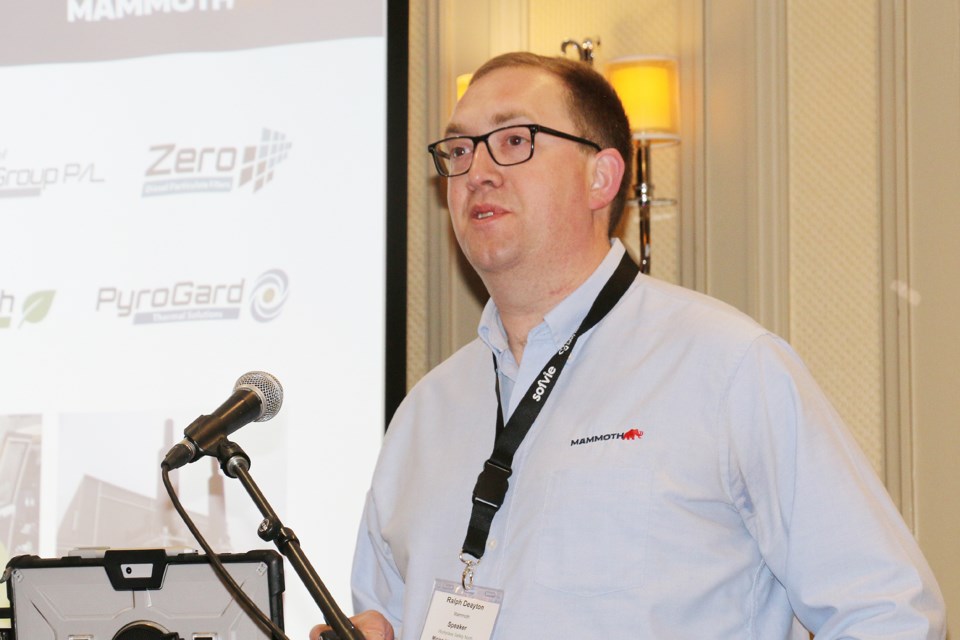When new diesel exhaust regulations came into effect last fall, it placed some Ontario mining operations between a rock and a hard place.
The new rules put limits on the level of diesel particulate matter (DPM) expelled from diesel-powered mobile equipment, especially in underground mining spaces.
That meant that mines that owned older diesel-powered equipment could be faced with either shutting down those machines or buying some blisteringly expensive new mobile equipment, such as BEVs (battery electric vehicles).
Ralph Deayton of Winnipeg said there is a solution that will keep miners breathing easier and let the mines continue to run their diesel machines, in a cost-effective manner..
Deayton, a sales representative with Mammoth Equipment and Exhaust which has created a line of particulate filters that can be installed on mining machines.
Deayton was speaking last week at the Workplace Safety North mining health and safety conference held in Sudbury.
He said industry and health authorities have determined that diesel exhaust particulate has been found to create long-term harm to the miners and machine operators.
"What we're really concerned about is those particles that get down into our lungs, causing irritation, that irritation repeated, obviously leads to lung disease," said Deayton.
"There's a need today to protect our workers. And that's really where we fit in," he told the audience.
Previously, Ontario miners were exposed to some of the highest diesel limits in Canada, rated at 400 micrograms per cubic metre. Under the new regulations, (September 2023) the Ontario diesel particulate level was lowered to a maximum of 120 micrograms per cubic metre.
In Sudbury, a project undertaken by the United Steelworkers is proposing the limit should be lower. Researcher George Flagler, a graduate student in the Masters Interdisciplinary Health Program at Laurentian University, has said the limit should be set at 20 micrograms per cubic metre, a limit that is set in some European countries.
Deayton said Mammoth has created a line of exhaust filters that can be fitted onto existing diesel machines to filter out 99 per cent of particulates, 90 per cent of carbon monoxide and 90 per cent of hydrocarbons. The idea is that exhaust filters are installed at a much more reasonable cost than replacing mobile mining equipment.
He said the company also provides gas detector devices that companies can use to test the air in working areas where mobile equipment is required, to be assured that the exhaust emissions are within the provincial level.
Deayton said Mammoth filter equipment was being used in some Ontario mines prior to the new regulations. He gave the example of the Newmont mine at Musselwhite, north of Thunder Bay. He said the change was a radical improvement.
Deayton said the company also learned that some filters could be modified and adapted to mobile equipment based on the level of work being done. Some machines such as haulage trucks and scooptrams that were running for a full shift, required heavy duty filters while some lighter duty vehicles that did not run all shift were able to effectively reduce particulates by using light duty filters.
Len Gillis covers mining and health care for Sudbury.com.
